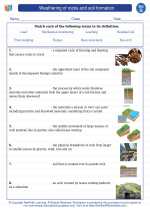Resilience: Understanding and Building Emotional Strength
What is resilience?
Resilience is the ability to bounce back from difficult experiences and adapt to change or adversity. It involves having a positive mindset, strong coping skills, and the ability to maintain emotional balance in the face of challenges.
Why is resilience important?
Resilience is important because it enables individuals to navigate through life's challenges with greater ease. It helps in developing emotional strength, enhancing problem-solving abilities, and promoting mental well-being.
Factors that contribute to resilience
- Supportive relationships
- Positive self-esteem
- Effective coping strategies
- Adaptive thinking patterns
- Strong social and emotional skills
Ways to build resilience
- Developing strong social connections and seeking support from friends and family
- Practicing self-care through regular exercise, healthy eating, and sufficient rest
- Setting realistic goals and maintaining a positive outlook
- Engaging in activities that bring joy and relaxation
- Seeking professional help when needed
Study Guide
Here are some key points to remember when studying resilience:
- Define resilience and its importance in maintaining emotional well-being.
- Identify the factors that contribute to resilience.
- Explain the ways to build and strengthen resilience.
- Discuss the role of social support in fostering resilience.
- Provide examples of how resilience can be applied in daily life.
Understanding resilience can greatly benefit individuals in navigating life's challenges and promoting mental and emotional well-being.
.◂Science Worksheets and Study Guides Seventh Grade. Weathering of rocks and soil formation
Study Guide Weathering of rocks and soil formation
Weathering of rocks and soil formation  Activity Lesson
Activity Lesson Weathering of Rocks
Weathering of Rocks  Worksheet/Answer key
Worksheet/Answer key Weathering of rocks and soil formation
Weathering of rocks and soil formation  Worksheet/Answer key
Worksheet/Answer key Weathering of rocks and soil formation
Weathering of rocks and soil formation  Worksheet/Answer key
Worksheet/Answer key Weathering of rocks and soil formation
Weathering of rocks and soil formation  Worksheet/Answer key
Worksheet/Answer key Weathering of rocks and soil formation
Weathering of rocks and soil formation  Vocabulary/Answer key
Vocabulary/Answer key Weathering of rocks and soil formation
Weathering of rocks and soil formation  Vocabulary/Answer key
Vocabulary/Answer key Weathering of rocks and soil formation
Weathering of rocks and soil formation  Vocabulary/Answer key
Vocabulary/Answer key Weathering of rocks and soil formation
Weathering of rocks and soil formation  Vocabulary/Answer key
Vocabulary/Answer key Weathering of rocks and soil formation
Weathering of rocks and soil formation 

 Activity Lesson
Activity Lesson
 Worksheet/Answer key
Worksheet/Answer key
 Worksheet/Answer key
Worksheet/Answer key
 Worksheet/Answer key
Worksheet/Answer key
 Worksheet/Answer key
Worksheet/Answer key
 Vocabulary/Answer key
Vocabulary/Answer key
 Vocabulary/Answer key
Vocabulary/Answer key
 Vocabulary/Answer key
Vocabulary/Answer key
 Vocabulary/Answer key
Vocabulary/Answer key

The resources above cover the following skills:
LIFE SCIENCE
Unity and Diversity
Analyze and interpret data for patterns of change in anatomical structures of organisms using the fossil record and the chronological order of fossil appearance in rock layers.